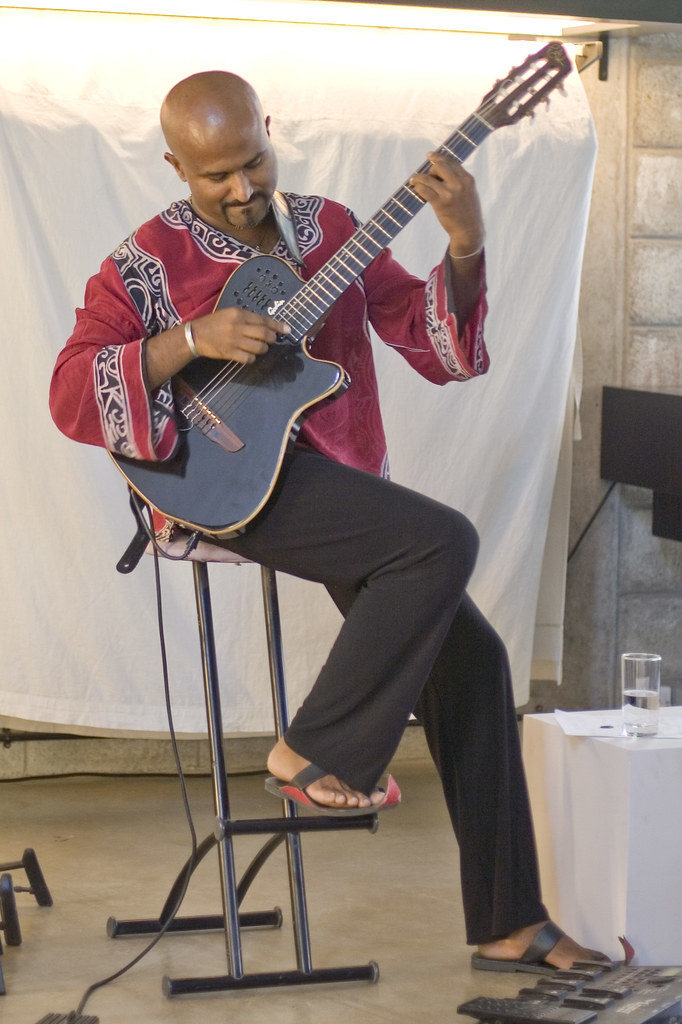Posts Tagged ‘Jazz and Rock Guitar Technique’
Jazz or Rock Guitar – Sensing When You’re Hurting Yourself (Electric)(Musicians)(Psychology)(Pain)(Strain)(Injuries)(Posture)(Alexander Technique)(Albuquerque)
This ebook, An Alexander Technique Approach to Jazz and Rock Guitar Technique, is published on this website in a PDF format. It is very detailed and practical, and it will give you the physical tools you need to take the limits off of your ability to create the accurate guitar technique you want without sacrificing your body.
This ebook is also for sale on all AMAZON websites in a KINDLE format.
Located in Albuquerque, New Mexico, U.S.A. (MOVEMENT THERAPY)
HOW DO YOU KNOW THAT YOU’RE NOT DOING ANYTHING PHYSICALLY HARMFUL IN YOUR JAZZ OR ROCK GUITAR TECHNIQUE AND POSTURE? This question seems like it would be very easy to answer, even if it isn’t always easy for you to create a jazz or rock guitar technique/posture that is benign. One answer is, when you are hurting as you play the jazz or rock guitar, you are doing something wrong when you play the jazz or rock guitar.
But what if you aren’t hurting, and you’re doing something wrong in your jazz or rock guitar technique that will eventually get you in physical trouble. How do you know if this is happening?
There are two signs that hint at future physical problems. First, you can’t play the most difficult music written for the jazz or rock guitar that is worth playing, without a struggle, so you can’t count on your hands to make it through the most difficult sections of these pieces on the jazz or rock guitar. Second, you are physically exhausted on a daily basis after practicing. Maybe a better word for exhausted is that your practice wearies you and your body.
If you are a jazz or rock guitar player who has played for a very long time, and the above two things are happening in your jazz or rock guitar playing on a regular basis, and you don’t have any consistent aches or pains on the jazz or rock guitar, then you probably have not paid any attention to your struggle and weariness on the jazz or rock guitar.
In fact they may have been with you for such a long time, that you never ever questioned whether struggling with the best jazz or rock guitar music and being exhausted by it was inevitable.
STRUGGLING WITH AND BEING WEARIED BY THE BEST MUSIC OF THE JAZZ OR ROCK GUITAR IS NOT INEVITABLE. IT IS HOW YOU LEARNED TO PLAY THE JAZZ OR ROCK GUITAR. IT ISN’T THE NATURE OF THE INSTRUMENT TO HURT YOU WITH ITS BEST PIECES.
So, you have two choices here. You can hold it together doing what you’ve always done, and you may never get into physical trouble. Do you really never ever want to explore whether you have what it takes to play the best music of the jazz or rock guitar with great ease and joy and be ecstatic at the end of a practice session?
Or do you want to preemptively take a very close look at your jazz or rock guitar technique and posture, and discover whether the jazz or rock guitar’s best music is available to you?
Having said what I just said, let me back up a bit. Most jazz or rock guitar players do not question their technique and find their way to an Alexander Technique teacher, until they get into physical trouble. I can understand it. Many jazz or rock guitar players do not want to back up to almost being a beginner again, even for a short period, to solve technique problems they never knew existed or shouldn’t exist. What do I mean by “shouldn’t exist”?
I mean that after years of training with teachers you believed in, it can be very scary to accept that there may be a much better way to play the jazz or rock guitar. Is confronting this fear worth it? The better question is, are you worth making the changes to how you play the jazz or rock guitar, so that you can create the performance you want on the jazz or rock guitar, without struggle and angst?
Yes! But be aware that if you live by the motto, “no strain, no gain”, then you can’t continue to live by this belief, if you pursue the holy grail of effortless jazz or rock guitar playing you deserve.
